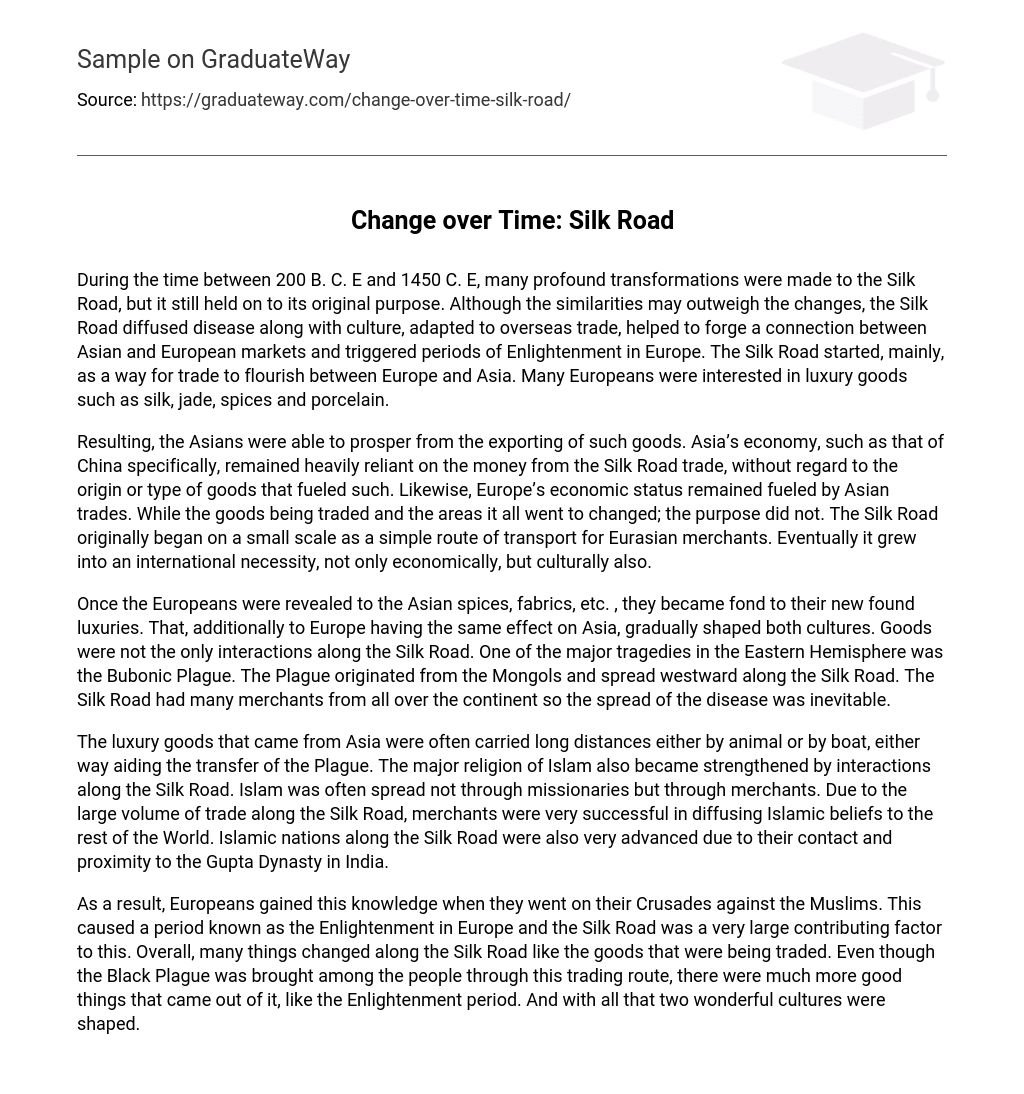During the time between 200 B. C. E and 1450 C. E, many profound transformations were made to the Silk Road, but it still held on to its original purpose. Although the similarities may outweigh the changes, the Silk Road diffused disease along with culture, adapted to overseas trade, helped to forge a connection between Asian and European markets and triggered periods of Enlightenment in Europe. The Silk Road started, mainly, as a way for trade to flourish between Europe and Asia. Many Europeans were interested in luxury goods such as silk, jade, spices and porcelain.
Resulting, the Asians were able to prosper from the exporting of such goods. Asia’s economy, such as that of China specifically, remained heavily reliant on the money from the Silk Road trade, without regard to the origin or type of goods that fueled such. Likewise, Europe’s economic status remained fueled by Asian trades. While the goods being traded and the areas it all went to changed; the purpose did not. The Silk Road originally began on a small scale as a simple route of transport for Eurasian merchants. Eventually it grew into an international necessity, not only economically, but culturally also.
Once the Europeans were revealed to the Asian spices, fabrics, etc. , they became fond to their new found luxuries. That, additionally to Europe having the same effect on Asia, gradually shaped both cultures. Goods were not the only interactions along the Silk Road. One of the major tragedies in the Eastern Hemisphere was the Bubonic Plague. The Plague originated from the Mongols and spread westward along the Silk Road. The Silk Road had many merchants from all over the continent so the spread of the disease was inevitable.
The luxury goods that came from Asia were often carried long distances either by animal or by boat, either way aiding the transfer of the Plague. The major religion of Islam also became strengthened by interactions along the Silk Road. Islam was often spread not through missionaries but through merchants. Due to the large volume of trade along the Silk Road, merchants were very successful in diffusing Islamic beliefs to the rest of the World. Islamic nations along the Silk Road were also very advanced due to their contact and proximity to the Gupta Dynasty in India.
As a result, Europeans gained this knowledge when they went on their Crusades against the Muslims. This caused a period known as the Enlightenment in Europe and the Silk Road was a very large contributing factor to this. Overall, many things changed along the Silk Road like the goods that were being traded. Even though the Black Plague was brought among the people through this trading route, there were much more good things that came out of it, like the Enlightenment period. And with all that two wonderful cultures were shaped.





